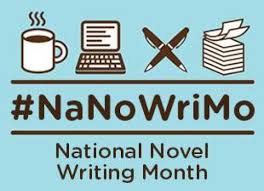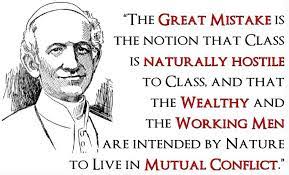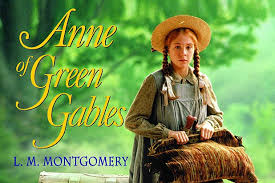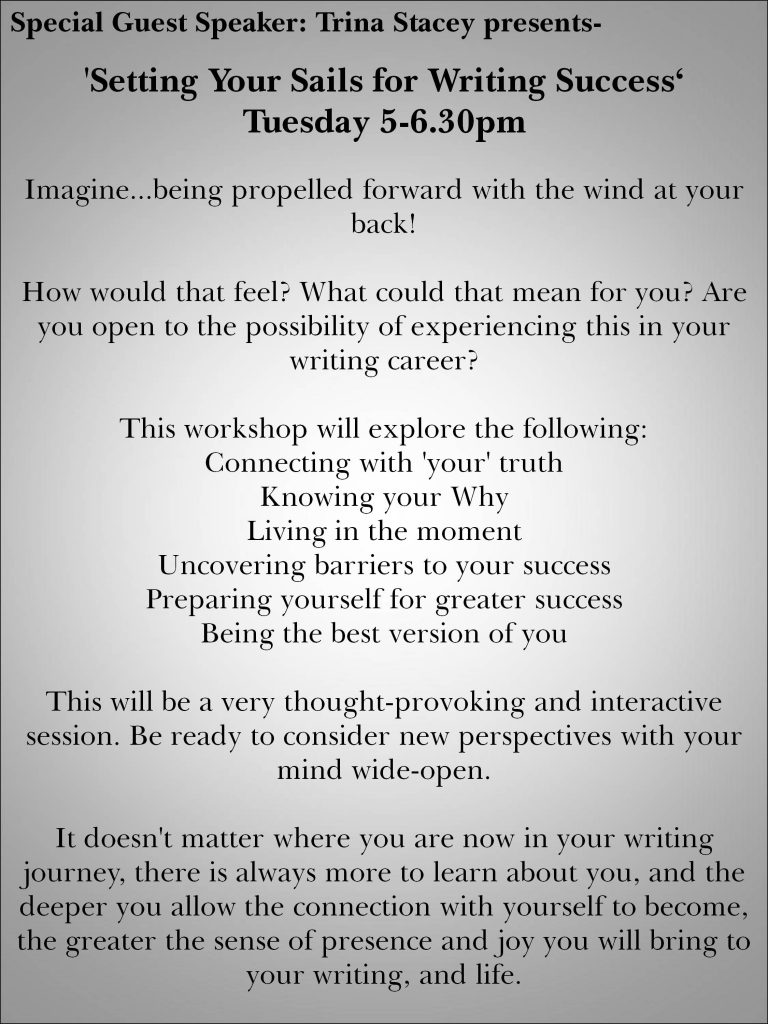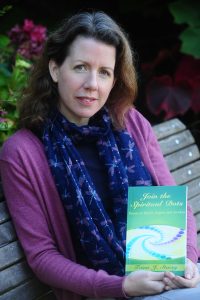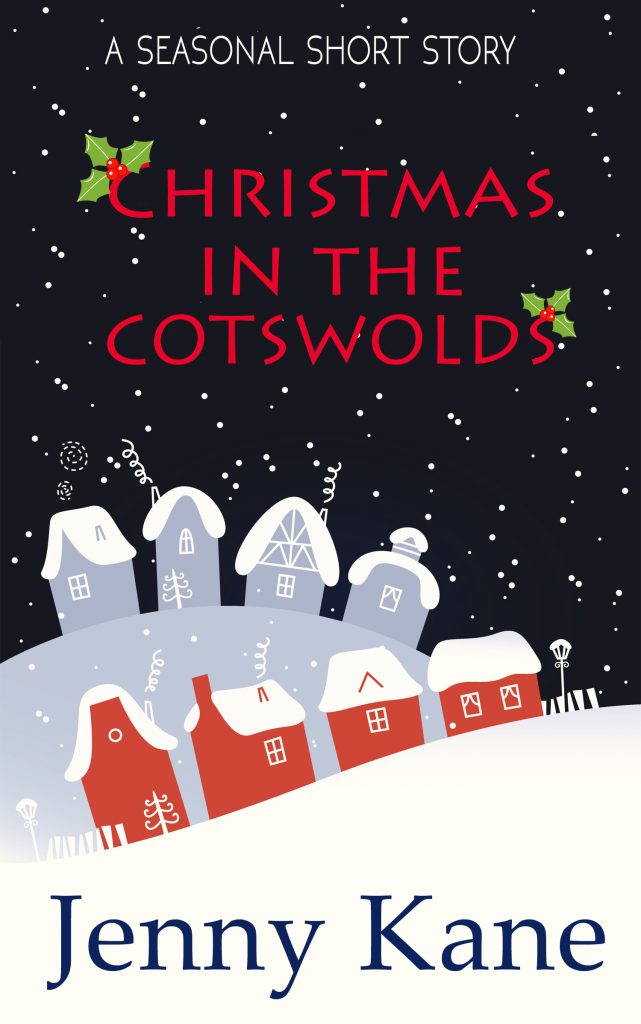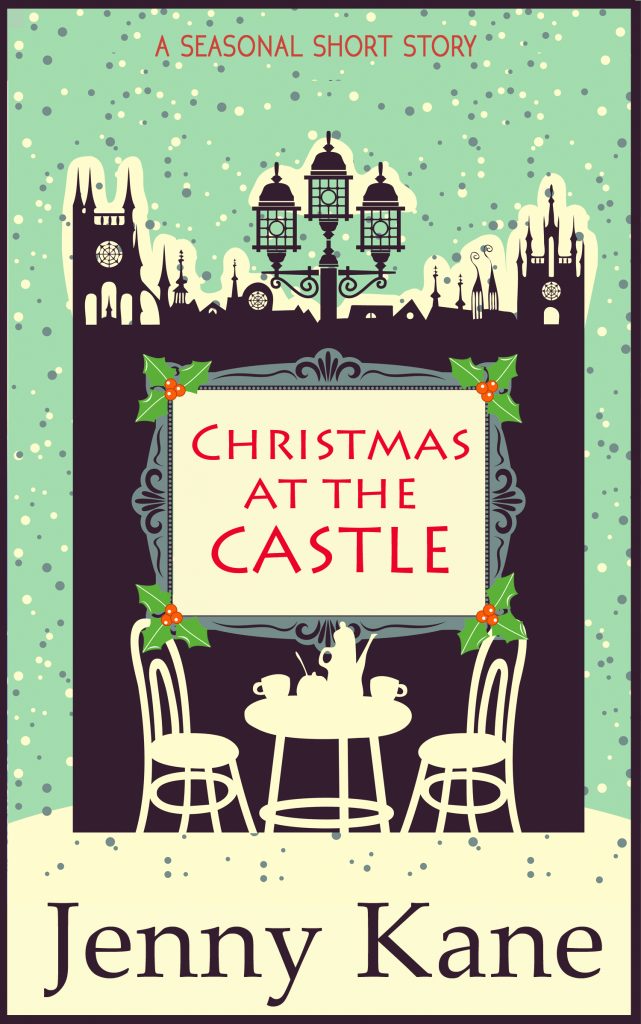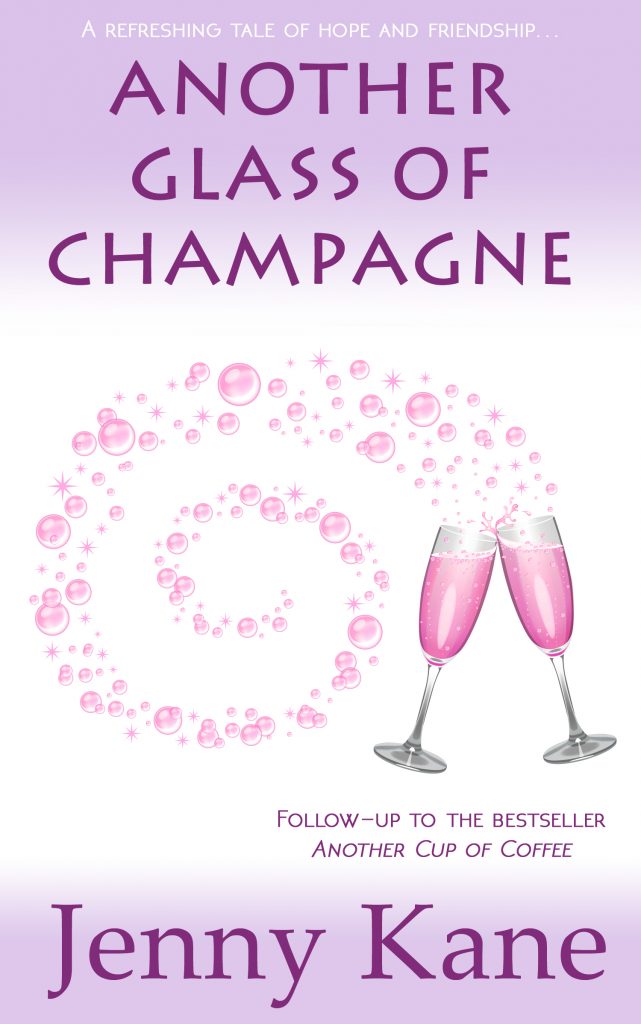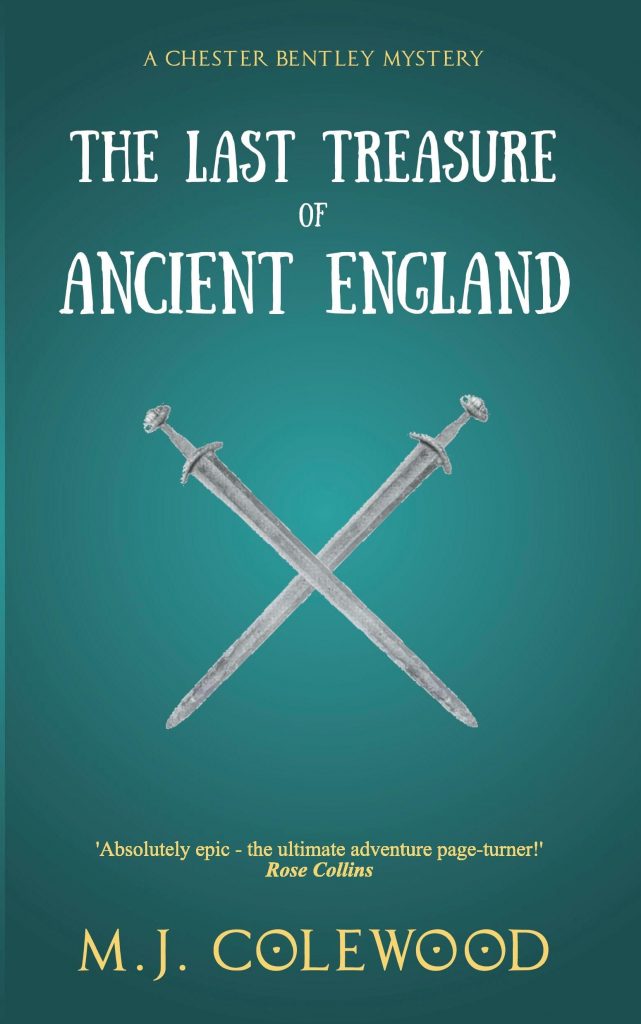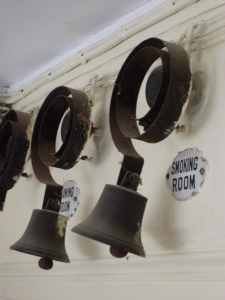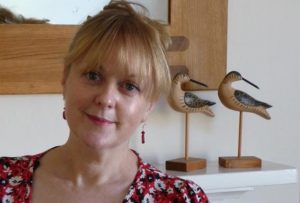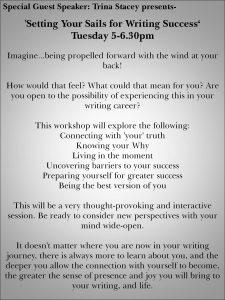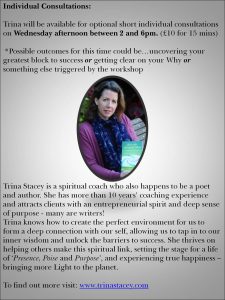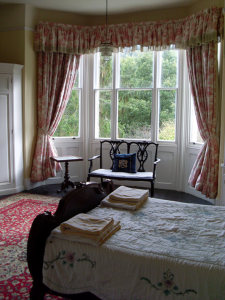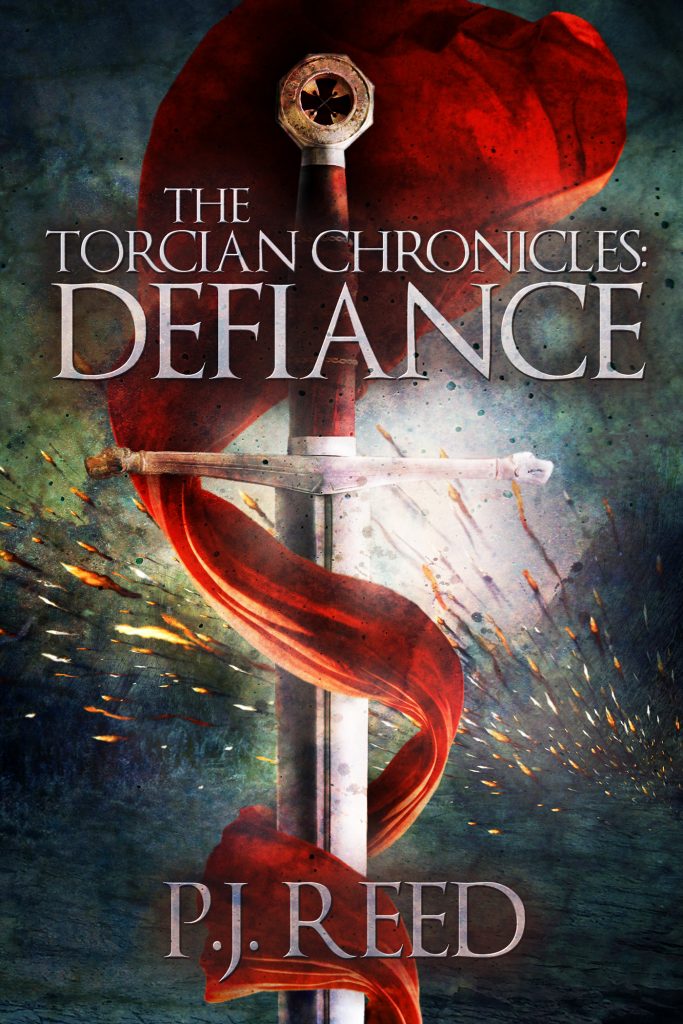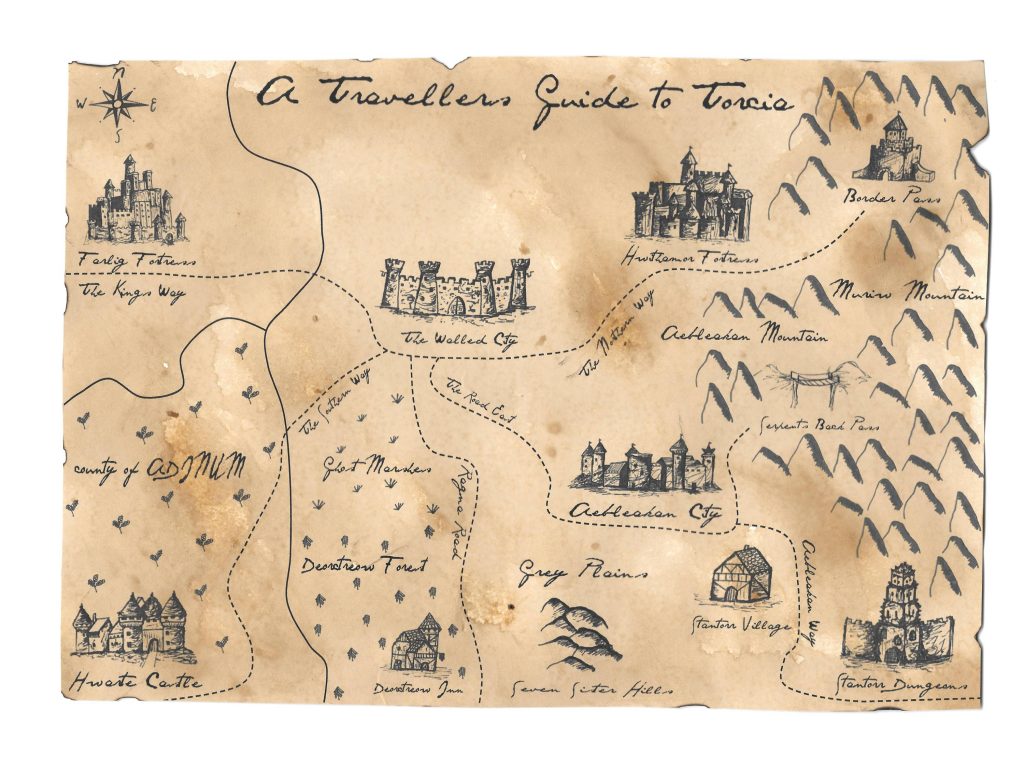Today I’m welcoming the lovely Jane Risdon to my site to chat about ‘Only One Woman,’ a novel she co-wrote with the equally lovely Christina Jones. So grab a cuppa, settle down, and have a read of not just a great blog, but some fabulous excerpts from the book as well

Hi Jenny, thanks so much for allowing me to natter about Only One Woman with you and your readers. It is always good to talk, and boy I love to talk….ask anyone.
In my wildest dreams I never thought I’d actually manage to become a writer; it was something I’d put on the back-burner when work and family life occupied my every waking moment, and often my dreams and nightmares too. Spending my life working with testosterone fuelled young musicians and PMS stricken young singers didn’t allow for much time to myself and so thoughts of writing were put firmly aside until ‘one day.’
When at last I found time to write I was amazed to have my short stories published, and so I began writing novels – mostly crime and thrillers – and that is the box in which I thought I’d remain. Writing Women’s Fiction had never crossed my mind.
Christina Jones and I have been friends since the late 1960s when my boyfriend, a musician, first came to England with his band to tour and record and she was asked, by their manager, to be their fan-club secretary. She was a rock/pop journalist at the time, interviewing all the famous bands and singers whilst writing short stories for Teen magazines, and was a great find because she had some amazing contacts which their manager wanted to exploit. The three of us have remained firm friends since those days – I married my musician.
My husband and I went on to have a career in the international music business when he decided he’d had enough of touring and we decided to go into artist, musician, and record producer management. Silly! The recording and touring continued. During this time Christina became an award-winning, best-selling author of Bucolic Frolics and although we chatted often about writing together, it was something we’d do ‘one day,’ when we were in the same country at the same time, and I had that elusive luxury – time.
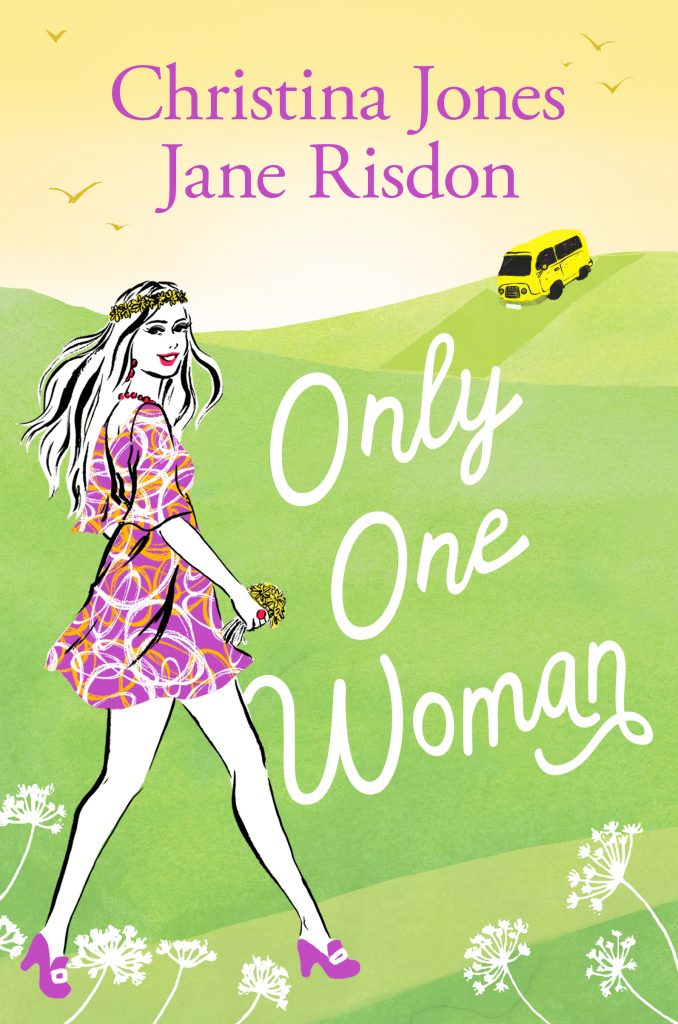
Once I began writing crime any thoughts of writing with her seemed even more of a distant dream. How could we write together when she wrote fluffy, feel good, humorous stories with loveable characters, and I murdered most of mine every which way and how – a dilemma indeed.
But we had a shared past. We’d both lived with music daily and knew the sixties music scene well. We’d both been ‘with the band.’ We decided we’d write about what we knew – always a good move writers are told. And so it was left – that elusive ‘one day,’ thing again.
Fast forward a few years and I moved country and house and whilst unpacking I came across lots of old group photos (hubby’s) and posters, tour schedules, and fan letters – general memorabilia – and I began to make note of dates and events; which groups were in the charts and so on. Thinking about it later I realised I could use all this in a story and I began to write about a young girl who lived in 1968/69 – Renza – who met and fell in love with a lead guitarist, Scott. Not a dead body in sight. As I wrote I kept thinking about Christina and we eventually chatted about the story and decided that this was ‘IT,’ this was ‘THE,’ story we could write together. Renza would not be the lone main character, Stella was going to join her and we’d write from the point of view of them both, in diary form.
Writing with another author is not something either of us has ever done before. We didn’t live near each other so getting together wasn’t an easy option, and Christina had deadlines for her publisher – who we realised soon afterwards – was my publisher too by this time. We agreed I’d get on with writing my parts and as soon as I was ready, I’d send it to her to add her parts – Stella’s story. Writing Only One Woman is very 21st century. We wrote together using text messages, Facebook messages and email.
Due to our various commitments and the numerous set-backs both of us suffered with ill health and accidents, it has taken longer than planned to reach where we are now – publication on 23rd November 2017. I started writing it in 2012 and in 2014 it was finished and taken up by our publisher, Accent Press Ltd., soon after. Publication was set for the end of 2014, then various dates in 2015, and then 2016, and we were beginning to despair. Editors came and went and so it went on. Publication was scheduled for May 2017 and we were asked by yet another editor to write additional chapters and publication was moved to November 2017. Considering we’d written over 120,000 words, we were taken aback but we dropped everything and worked ourselves silly to do as we were asked. We sent off our efforts and our editor left soon after. 160,000 plus words with no-one left to edit them, so Christina and I worked ourselves silly to knock the book into shape and there you have it – War and Peace for the 21st century – and two very exhausted authors.
If you lived through the heady days of the 1960s this book will bring back some wonderful memories of the music of the sixties – later known as ‘The British Invasion of America’ – and the vibe of the time; a time when every village hall had a Chart band playing Saturday nights and when the fashions were innovative, outrageous, and such fun. We wrote about the huge world events shaping the lives of Renza and Stella – both in love with Scott, the drop-dead-gorgeous lead guitarist with Narnia’s Children who in turn loves them both too – and who must make a choice because there can be Only One Woman.

Music fills the pages and for those who were not born back then, Only One Woman will give a great insight into the times and lives of teenagers and musicians and the early birth of what has become ‘The Music Business,’ and made the careers of so many established, super-stars today. We thought the music so important, both Renza and Stella have their own YouTube Playlists to play when reading their story.
Writing together has been great fun, desperately frustrating, and so very uplifting too. We have cried and laughed as we’ve written and all the time we’ve sung along to the tunes which are still such a huge part of our lives. Christina and I suggest sitting down with a glass of wine, our playlists on in the back ground, and a man-sized box of Kleenex close by when you read Only One Woman.
***
Blurb for Only One Woman
Two women, one love story.
June 1968. Renza falls head over heels for heartthrob guitarist Scott. But after a romantic summer together they are torn apart when Renza’s family moves away.
December 1968. On the night she believes to be her last, Stella meets Scott at a local dance. He’s the most beautiful boy she’s ever seen and if this one night is all they have, she’ll take it.
As the final colourful year of the sixties dawns, the question is: can there be only one woman for Scott?
***
***
This blog forms the last day of Jane and Christina’s blog tour- make sure you haven’t missed nay of their stops!
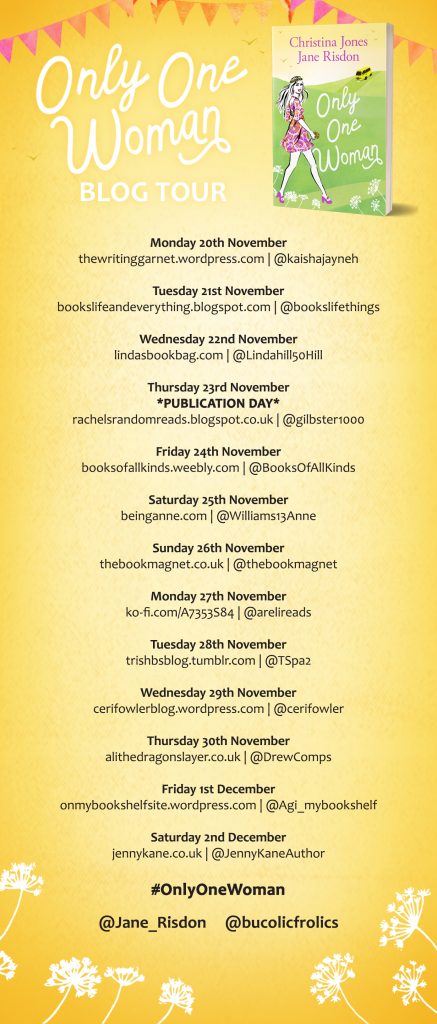
Here are two delicious extracts to wet your appetite…
Renza’s Diary
June 29th 1968 – later
What a dump! The local band seemed to live in part of an old house which looked derelict from what I could see. There wasn’t any furniture to speak of, just old packing cases for tables, piles of cushions and beanbags on the red thread-bare carpet. At least, I think it was red but it was hard to tell in the candle light coming from the Mateus Rose bottles dotted round the room.
The light flickered on Che Guevara and ‘Ban the Bomb’ posters, giving them a bit of a sinister look. Very anti-establishment here – Dad would go nuts.
Distorted shadows fell on couples lying around, mostly snogging or smoking, and a few were standing swaying to the music from the Philips Cassette player in the corner. I was saving up for one I’d seen in Rumbelows. It was going to take another month to have enough and I hoped it wouldn’t be gone before we moved. I should never have got the Cathy McGowan mini with the zipped front like Twiggy, it was far too expensive, and had left me without any money until the end of the month.
I hadn’t had chance to wear it yet because I was trying to hide it from Mum until she was in a good mood – whenever that was going to be. I earned the money for my clothes, so I didn’t see why I couldn’t wear what I wanted. But no, she had to inspect me every time I left the house, lecturing about what I’m wearing: too short, too long, too much leg showing – moan, moan, moan. The dress is gorgeous though: paisley pink, sleeveless and with a fab mandarin collar – very sexy – and with my long white lace-up boots I am going to blow Scott’s mind when he sees me in it.
Scott had vanished into the gloom with the rest of the boys, and just as I was about to follow, someone lurched up to me and shoved a pile of home-taped cassettes into my hands. ‘Here, doll. Put some music on, there’s a love. Your choice but make it cool, right?’ And lurched off again.

Renza
I was just about to say I wasn’t the DJ and didn’t know how the cassette player worked when I noticed a couple heaving and groaning on a pile of grubby cushions almost by my feet. I tried to avert my eyes and not blush – but too late. They rolled over and nothing in the world could have prepared me for the shock of witnessing two bearded men coming up for air following a long, fierce, snogging session. I only just stopped myself shrieking out loud and tried not to look at the couple, both with long blond locks and tight bell-bottoms, as they got down and dirty again on the pile of cushions. I’d just assumed it was a guy and a girl. Well, I would. I mean, blokes kissing blokes? And they were groping each other.
I felt myself going scarlet as I had made eye contact with them. My mouth gaped open, and total confusion almost paralysed my brain. They were nearly having sex in front of everyone, including me – a convent girl – for goodness sake! They just grinned at me and then started groping each other again. I looked away confused and embarrassed, and tried to concentrate on the cassette tapes in my hand. But I couldn’t help myself. I couldn’t take my eyes off them. I watched them from underneath my long fringe, fascinated yet repelled at the same time.
Had anyone else noticed it was two blokes? Of course, I had heard about people like them, I mean, we got Sex Education at school, and hadn’t I been rescued from two girls trying to kiss me in the loos at Merry Hill for goodness sake. But actually seeing them, and watching them nearly ‘doing it’, well, that was something else. Part of me wanted to giggle. But I was cool, sophisticated, part of the ‘in crowd’. Wouldn’t do to make too much of it, otherwise I might look as if I didn’t belong and I really did want to belong.
I was supposed to be picking tapes to play and that was hard enough. Working out which songs would be hip and which ones might not be was giving me a migraine. I gave up and put them with the pile on the floor, deciding to let someone else pick the music. I glanced round the gloomy room looking for Scott, or at least something to focus on and take my mind off the couple who were getting a bit too much for me to handle on my own. I eventually spotted Scott chatting to The Fulcrum’s drummer. Someone else had taken over the music and The Beatles, sang, ‘Girl,’ in the background, which made me want to laugh out loud. Not a hip thing to do. Wonder who chose that one? Someone else had seen the blokes, I bet.
I sat on the edge of a packing case and tried to catch Scott’s eye but he was too engrossed as he and the drummer poured another glass of Watney’s from the party tin. Typical, he’s having another beer and I haven’t had a thing to drink yet. When we’d arrived he’d told me not to drink or eat anything without showing him first. No explanation why, and that was ages ago. He’d gone off to the loo and hadn’t made it back to me yet. Clearly too many distractions, not just the beer.

Carnaby Street
Everyone else seemed to be getting seriously mellow. Why the hell couldn’t I at least have some food? It had been hours since I’d eaten and the sickly sweet smell in the room was making me feel a bit light-headed.
The Beatles’ ‘Lady Madonna’ repeated on the cassette player as if the tape had got stuck. It was their latest hit, I loved it. I looked over and saw a girl in a flowing kaftan re-insert the tape and it played again. She watched it for a moment and then started swaying to the music all on her own in the centre of the room, her arms raised over her head, which seemed to rotate. I’d get dizzy doing that. I waited, but she didn’t fall over. Several blokes watched her closely.
Trying not to look at the two bearded beauties again, I stood up, smoothed my new purple Samantha Juste hipsters, and tucked my pink skinny rib into them. I wandered towards the wallpaper table and what was left of the food: a few soft looking sausage rolls and a couple of scotch eggs which had probably been sitting out for hours, I didn’t fancy the look of them. A few packets of Smith’s crisps and some peanuts was the alternative. I grabbed a packet and a handful of nuts and tucked in whilst I studiously avoided the lovers on the cushions.
‘Hi babe, what’s your name?’ I turned to see a tall skinny bloke with long black hair and a pair of lime green bell-bottoms grinning at me, cigarette dangling from his rather thick lips. I peered hard at him and then realised he was one of The Fulcrum’s guitarists, so it must be his party.
‘Saw you at the gig tonight,’ he added, flicking his ash away.
‘Err, yeah,’ I said looking for Scott. I was trapped between the table and the guitarist, who kept blowing sweet smelling smoke at me. I felt sick from it.
‘How about you and me then, babe?’ he moved up close to me and put an arm round my waist. He smelled of Old Spice. I can’t stand Old Spice.
‘I’m with my boyfriend,’ I said lamely as I wriggled away from him.
‘Don’t look like it from here babe,’ he said as he grabbed me again. ‘Let’s go over there and get to know each other.’ He tried to pull me into the shadows.
‘No, please.’ I tried not to whine, it’s not cool to whine. The magazines all say boys hate whiney girls. ‘I really am with my boyfriend, he’s over there.’ I pointed to Scott still chatting to the drummer ‘Yeah, cool… Come on babe, don’t be like that.’ He tugged my arm again and held me tightly.
‘Please, leave me alone,’ I whispered through gritted teeth, ‘I don’t want to go over there with you!’
Someone changed the tape and Amen Corner’s ‘Bend Me, Shape Me’ got a lot more people on their feet, and I started to get a bit claustrophobic as they seemed to close in on me. My head was spinning.
‘Hey, man, what gives?’ I nearly fainted with relief as Scott came up to us and put his hand on the guitarist’s shoulder. He grinned at me and winked.
‘Scott! Hi man, nothing much.’ My captor let go of my arm and took a long drag on his roll-up. ‘Your chick?’ He nodded towards me and blew smoke into my face. I started to cough and my eyes streamed.
Scott said, ‘Yeah, she is,’ and took my arm and guided me over to the drinks. He opened a Pepsi and handed the bottle to me. I gulped it down, handed the bottle back to Scott, and fished in my new Mary Quant shoulder bag for a hanky to dab my eyes. It came away all black from my mascara and eyeliner, and I had to fish around some more to find my mirror.
‘Oh, now look at my eyes,’ I sniffed. ‘Is there a ladies where I can redo my face?’ I looked like a panda with two black smudges where my perfectly applied Dusty Springfield look had been.
‘You don’t want to go in that loo, babe, trust me.’ Scott held my Pepsi in one hand and stroked my hair with his other.
My legs went to jelly. I came over all unnecessary every time he touched me, and I felt myself getting all hot and bothered. Scott looked curiously at me for a few seconds and then laughed out loud.
‘Look at you, getting in a tizzy.’ He laughed and handed me my Pepsi. ‘Drink that up and I’ll hold your mirror so you can do your face. We can go over there by the candles. I’m sure you’ll be able to see well enough to put your war paint on again.’
He held the mirror whilst I tried my best to repair my face. I felt his eyes upon me the whole time, watching me with an amused expression. My hands shook as I tried to re-apply my eyeliner and mascara. Damn the plastic eyeliner liquid, it never goes on easily and dries so fast. I put some spit on the mascara cake and dabbed the brush over it, and applied several layers to my lashes.
‘The stuff chicks mess with,’ Scott watched me closely, ‘you don’t need any of that, Renza, you are way cool without it you know.’
I blushed – again.
‘Oh God – what time is it?’ I asked, as The Beach Boys started to sing, ‘Darlin’.
‘About midnight. We’ll go soon, don’t worry, you won’t be late.’ Scott put his arms round me and held me close, and we swayed in time to the music.
My legs did a good job holding me upright but my body felt in a state of collapse. So close, and held so tightly, it was heaven. Scott stroked my hair and I closed my eyes and wished that it would never end. It was too much. I came back to reality with a jolt when someone bellowed close to my ear.
‘Scott, man, great gig, hope you cats come and play with us again.’ The bass player with the local band held his hand out and they shook hands. He peered at me, giving me the once over.
‘No sweat,’ said Scott, ‘where’re you playing next?’ and he let go of me suddenly, so I had to struggle to support myself.
‘Back at Merryhill. We have three nights here before we go to Germany,’ the bass player said, tossing a peanut into the air and catching it in his mouth.
‘Oh, yeah of course. Well, we’re back here in about a month I think. We’re off to Scotland tomorrow, Elgin and Wick, and some other places I can’t think of,’ Scott told him.
Oh, yeah? It was news to me.
More couples were dancing now, swaying next to us as Scott dropped his bombshell.
‘Then we’re off on some cruises in the Med for a few weeks. It’s good money and our manager says it’s great exposure.’ ‘
My mind went blank for a few seconds: a few weeks, in the Med? He’d never told me any of this… A few weeks?
Scott must have seen how stricken I was as he put his arm round me and squeezed me tightly. ‘Sorry Renza, only found out earlier and was gonna tell you, but you know how it is,’ his voice trailed off when he saw this didn’t help.
I felt my whole world was coming to an end.
A girl in a tight fitting bolero top and hipster trousers came over to us and flung her arms round Scott, kissing him on the mouth, a bit too long and hard for my liking. Scott didn’t seem in too much of a hurry to push her away, and she melted into him as if she was trying to come out the other side.
‘Scott lover, how’s it hanging?’ She sounded just like Fenella Fielding, all breathy and wanton.
‘Yeah Scott, just how is it hanging?’ I snapped and flounced off to where I could see Rich sitting on his own, hugging a beer.
‘Hi Renza, babe, what’s up?’ Rich held the glass up to me in greeting and took another drag on his ciggy.
‘Who’s that girl talking to Scott?’ I asked plonking myself down next to him on the huge bean bag. We both nearly fell off as it settled itself with my extra weight.
‘Hey, don’t waste good beer babe.’ Rich held his glass away from me as I wriggled to get comfy.
‘Rich, who is she?’ I asked again as I saw her drape herself all over Scott and nestle into his shoulder. The bitch! Scott didn’t seem too bothered.
‘She used to help Stephan – he’s the band’s manager I told you about earlier – in the office in Jersey and then she came to the mainland with her boyfriend. She’s no one important, she sometimes hangs with the band when we’re over.’
‘Hmm!’
I watched her like a hawk. Scott looked over and waved. The nerve!
Rich took a few gulps of beer and patted my leg. ‘Don’t fret about Scott, he’s mad about you. She’ll get the message after tonight.
I looked round the grubby room with its crates and boxes, and fake Greek Taverna decorations hanging from the walls, the fake fishing nets, glass baubles attached, and wine bottles with candles burning in them. And the couples seething in a mass on the floor, in the shadows, and on the cushions, doing goodness knows what, and I wanted to go home.
Actually, I wanted to get Scott to myself. Back home. In the village. Where things were normal.
‘Magical Mystery Tour’ came on and I suddenly thought about having to miss The Beatles at the Hammersmith Odeon, because I was ‘Mrs Spoffington’ in the school play, and couldn’t get out of it. Instead of The Beatles giving me the thrill of my life I was stuck on stage singing ‘Oh I do like to be beside the sodding sea-side,’ to a hall full of boring parents. Not that mine bothered to go.
‘Rich, mate, hi. Good gig. Stephan about tonight?’ A huge man of about thirty came up to us and nodded at me. ‘Want to sort some stuff out with him.’
He was wearing beads and a kaftan with an orange and green squiggly pattern on it, and had his ears pierced. His long black hair hung in tight curls around his shoulders. Mum would just love him.
‘Oh Renza, this is Psychedelic Smith,’ Rich said. ‘Remember we told you about him, he’s our fixer.’ I remembered. Apparently he was helping Stephan get Narnia’s Children a record deal. Everyone had to kiss up to him I was told. Well, thankfully, I don’t.
Psychedelic Smith dismissed me with a brief smile before turning back to Rich.
‘Stephan’s back in the smoke mate, got Top of the Pops with The White Knights, so he’s gotta be there for that.’ Rich drained his glass and put it on the floor next to him.
‘Right, yeah, going up the charts fast. That’s cool, I’ll ring him later. I’m in town tomorrow and want to arrange some record company auditions for the guys. Got some label interest.’
‘Do I need to re-organise anything for the boys?’ Rich asked.
‘Nope, I’ll sort some dates out with Stephan, he’ll let you know in good time. I’ve got some songs lined up for the guys to hear, so we’ll sort some dates for visiting publishers in town, too.’ I couldn’t help wondering what mum and Mrs Digby would say if Psychedelic Smith turned up in the village to visit the band. I giggled quietly.
Psychedelic Smith began to roll a ciggy and offered one to Rich. .
Rich shook his head and got to his feet. ‘Nah, mate, gotta drive back soon or her Mum’ll kill me if she’s not home on time, won’t she, babe?’ Rich smiled at me and looked at his watch, then went off to round up the band.
Psychedelic Smith took a few more drags and offered me one. I shook my head. I could just see me floating in the front door with Mum waiting up to look me over and make sure I hadn’t ‘been up to anything’.
‘No thanks.’
The Demis Russos look-alike shrugged and headed for the kitchen. Dad would have a blue fit if he knew I was ‘fraternizing,’ with blokes in dresses.

I knew the only reason I’d been allowed out so late with the band was because Mum quite liked Rich and he’d sweet-talked her into letting me go to the gig. God! If she could see me now, in this horrible house with everyone stoned, she’d have a migraine for a week worrying in case the village found out.
I looked at my watch. If we didn’t leave soon I was going to be seriously late and that would mean all hell breaking loose. Scott was nowhere to be seen now and Rich was chatting to ‘The Bitch’ by the food. I know it is horrid calling her that but she’s got right up my nose, wall-papering herself all over Scott.
People were still wrestling on the floor which meant I had to watch where I looked: I didn’t want to appear a Peeping Tom, though it was hard not to cast a sly glance now and again. I mean, seriously, some were actually ‘at it’ in full view. Anyone would look, wouldn’t they?
Thinking about it, how do you ‘do it’ in public without all your bits and stuff being on show? I couldn’t see anything, you know, rude or anything, but they were definitely ‘doing it’, I just couldn’t fathom how.
‘You look deep in thought,’ Scott made me jump, ‘what’re you looking at?’
Before I could answer he followed my gaze to the nearest couple. He threw his head back and laughed loudly. I blushed as if I’d been caught out doing something naughty.
‘Ah!’ he said, ‘I see.’
I felt really stupid. I could feel the heat rising up my neck to my face, thank goodness it was so gloomy.
‘Bit of an education eh?’ He grabbed my arm and led me through to what could only be called an apology for a kitchen. ‘Can you wait here while I get the others? We should leave now. Don’t move. I won’t be long.’
And off he went again.
The room was horrid. The sink was all cracked with brown stains and the green larder door was hanging off. A few tins of baked beans and soup was all that I could see on the shelves. A dirty milk bottle was on the draining board with about a dozen tea cups and spoons, all in need of a good wash. Dirty dishes were piled next to them, some with food still on them. I screwed my face up in disgust. How could anyone live like this?
An old gingham curtain hung in tatters at the filthy window which had a crazy paving of cracks across the top. A pedal bin stood in the corner overflowing with baked bean tins and Woodbine packets. The room stank of mould and rotting food.
I waited and tried not to think of what was surrounding me. Even my boots were sticking to the linoleum. What the hell was keeping Scot ‘Watchcha.’
I looked round to see ‘The Bitch’ as I’ll always think of her, standing in the doorway. She must’ve followed me in.
‘Looking for Scott.’
‘Well, as you can see he isn’t here,’ I said frostily.
She laughed and leaned against the door jamb. Looking me up and down, she rummaged in her pink PVC bag and took a thin black cigarette out.
‘Light?’ she asked as she placed it between her full, pale lips.
‘Don’t smoke,’ I said, and then kicked myself. I shouldn’t have let her know I wasn’t that cool; too late.
She laughed, ‘What? Too good to do the dreaded weed, eh?’ and she rummaged a bit more and came up with a box of Swan Vestas. ‘You must do something, coz Scott wouldn’t waste his time otherwise.’
She smirked and winked knowingly at me. I glared back.
She had long dark hair, cut like Cher’s, and her eyes were deep blue, peering out from her panda black eye make-up. She had a spot of acne on her chin, and that made me feel great.
The room filled with a pungent odour as she lit up and exhaled, blowing the smoke upwards. She folded her arms and continued to appraise me with an amused look on her face. The Hollies’ ‘Jennifer Eccles’ drifted into the room and she tapped her foot to the beat.
‘You’re the kid from where they live now,’ she stated flatly. ‘Not what I expected.’
I couldn’t think what to say. She made me feel like a stupid school kid and all my newly assumed sophistication was fast evaporating under her scrutiny. I shifted from one foot to another and flicked my hair forward so that she couldn’t see my face. I watched her from under my fringe. She had a smile on her face as she smoked and watched me back.
Scott appeared in the doorway. He winked at The Bitch. She smirked.
‘Come on, Renza, we’re off,’ and he held his hand out.
‘See you soon,’ he said, and blew her a kiss. She pouted her full lips and blew one back with a loud smacking noise, raised her eyebrows as I passed, and whispered, ‘I can have him anytime I want.’
I said nothing, but my heart was in my boots and I wanted to cry. I was in way out of my depth: the sneering girl, obviously enjoying my discomfort, whose relationship with Scott was too free and easy for my liking, Scott going away for weeks without even mentioning it, and this awful, gruesome house party… I just wanted to go home. Yet Mo said Scott loved me – I tried to hold the thought – but he’d never actually told me, not properly. Perhaps he’s changed his mind now he’s been out with me a few times, especially now he’s seen this girl again. I wish I had the nerve to ask him. But Rich said she’d be history after tonight, so perhaps I’m just being silly.
And I’d forgotten how far out in the sticks we’d gone to party with the band. Sitting in Bessie Bedford we were encased in total darkness, with no street lamps or nearby houses to comfort me. The wind was howling across Salisbury Plain and there was more than a spot of rain in it.
Rich tried three times before the engine decided to kick into life.
Bessie back-fired several times before we set off down the overgrown lane to the road. Although it was summer, there was a chill in the air and Scott put his parka round my shoulders when I shivered.
‘Won’t take long, should be a clear run back,’ he said as I strained to see my watch in the gloom. I snuggled into his shoulder and he squeezed me tight.
‘I can’t be later than one,’ I said. ‘Mum will kill me.’
‘Stop yapping,’ murmured Zak from behind the back seat where he was settled in amongst the gear. ‘Some of us need a kip.’
‘You shut up,’ came the reply from the other side of the gear where Joss was propped against the wheel arch.
The seat behind Scott and me was occupied by two girls I had never seen before. They were already in the van when we got in and apart from a muttered hello, hadn’t said a word to anyone, though I think I heard them whispering to each other now and again.
Mo sat in the front with a girl on his lap and she looked fast asleep. I had never set eyes on her before either. Only Rich hadn’t pulled. He drove in silence, chewing gum and smoking now and again. Thankfully he wound the window down when he did. My head throbbed. Everyone was tired. I had so many things to think about, to worry about, to talk to Scott about – but I couldn’t do any of them right now. Not in front of everyone, and I was so, so tired…
I sleepily wondered what it would be like to be married to Scott – not that that was ever going to happen – and closed my eyes and drifted off to sleep.
***

Stella’s Diary
December 7th 1968 – continued…
After a short walk, we joined the queue outside St Barnabus’ hall door, chatting with friends, admiring – or otherwise – each other’s outfits – stamping our feet, our breath like smoky plumes in the icy air. After a few minutes of shuffling, we were in, and having paid our money, we dumped our coats in the cloakroom, bought the obligatory beaker of orange squash – there was a no alcohol rule at St B’s as it was school premises but it never mattered because everyone just got high on the noise and the music and the excitement – and headed for the hall.
The dusty green curtains were pulled closed across the stage in the gloomy, moody darkness. Tiny lights twinkled in the ceiling and from one of the deepest, darkest corners, the DJ was playing an early Monkees hit. St Barnabus always put on a good night, and certainly knew how to create an atmosphere.

Stella
The place was packed. Most people had nabbed one of the chairs that were lined up round the outside of the floor, claiming them with handbags and drinks. A few mini-skirted girls were dancing – always the same ones – in front of the stage. Vix and I grinned at each other. We called them the Dolly-Rockers and we knew they’d be the ones trying to get off with the group’s singer later – even if he looked like Quasimodo’s much uglier cousin.
Vix and I found a couple of vacant chairs right at the front to the left of the stage.
‘Sit,’ Vix said, balancing our beakers of squash. ‘We’ve got ringside seats for when the group – what are they called – oh, yes, Narnia’s Children – comes on. And as you’re not going to rush off to interview them you can camp here all night if you don’t feel up to dancing.’
I nodded. Vix made my journalism sound very grand. It wasn’t really. A couple of years ago, I’d been asked by the teenage magazines to contribute pop group interviews as well as my short stories. I loved it.
I’d met and interviewed a lot of really big names and famous chart groups – like the Rolling Stones and The Move and Marmalade, and Amen Corner and The Walker Brothers and Status Quo, and The Crazy World of Arthur Brown and The Herd and Dave Dee, Dozy, Beaky, Mick and Titch – as well as several big-time club acts like The Alan Bown Set and Simon Dupree and The Big Sound and Argent, and many up-and-coming bands, too.
The magazines always bought my interviews and the extra money paid for my holidays, make-up, records, books and clothes. Vix always came along with me to these gigs – we’d had some really great adventures on our nights out, been to some top venues and met some fab people.
Of course, whatever Vix thought, the short stories and the pop interviews were really only my pin-money hobby. My proper job was still, and probably always would be – well, until I died on Monday of course – as a civil servant.
I’d been signed off from work indefinitely now, depending on the outcome of the operation and the length of my recuperation period, the personnel lady had said kindly. I could have three months off on full pay, and a further three months after that on half pay, if the hospital thought I needed it.
I hadn’t bothered to tell her that it didn’t matter too much as I wouldn’t be coming back to work when I was dead.
In St B’s hall, Vix was fussing round me like a mother hen. ‘Now, you don’t need to move all night, unless you need the lav of course, if you feel awful. Do you? Feel awful, I mean?’
‘No,’ I shook my head. ‘The pethidine has kicked in nicely – and honestly if this is my last night out I’m going to enjoy every minute of it. It’ll be just my luck that the group is rubbish tonight.’
‘They won’t be,’ Vix grinned. ‘Last time we were here, it was The Foundations, wasn’t it? And you got a really good interview with them – and they were amazing. This lot will be, too. You know they always have good groups here – even the ones we’ve never heard of like – um – Narnia’s Children.’
The DJ – who was actually Mr Fisk, St Barnabus’ science teacher, who always played records between the live acts and acted as Master of Ceremonies at the Saturday dances – had replaced the Monkees with the Tremeloes. The Dolly-Rocker girls in front of the stage all posed and pouted and pushed each other and danced a bit more wildly.
Then the music stopped, and Mr Fisk left his record deck, and scampered up on the stage, beaming in the spotlight, clapping his hands for silence.
‘He really thinks he’s Bruce Forsyth,’ I giggled. ‘And this is Sunday Night at the London Palladium.’
The girls pressed closer to the foot of the stage.
‘Ladies and gentlemen, boys and girls!’ Mr Fisk yelled into his microphone. ‘Lovely to see a full house tonight!
Now, let’s give a big, big St Barnabus welcome to your sensational band for this evening! All the way from Jersey in the Channel Islands! Let’s hear it for – Narnia’s Children!!!’
Everyone clapped and cheered and whistled and stamped their feet.
‘Blimey,’ Vix said. ‘No wonder we’d never heard of them. They’re foreign.’
The green curtains swished back and the footlights mingled in a smoky haze with the overhead criss-crossing spot-beams; the towers of speakers, slender spikes of microphones and snakes of cables transformed the stage from a school hall to a full-blown rock show; and Narnia’s Children roared into ‘I Get Around’ by the Beach Boys.
‘Wow…’ Vix mouthed, looking at me, wide-eyed. ‘Just wow…’
Just wow, indeed…
It was too loud to speak, to say anything, so we just stared at them – and each other.
The four boys – Narnia’s Children – on stage weren’t just brilliant musicians and sexy movers – they were definitely four of the most devastatingly gorgeous blokes we’d ever seen.
Tall, lean, long-haired and out-of-this-world-stunning, wearing skin-tight, brightly coloured flared trousers, and black skinny-rib sweaters that didn’t even attempt to hide their incredible tanned bodies, they rocked into another belting Beach Boys hit, followed by early foot-stomping Beatles, and then The Hollies – all very loud, fast-paced and brilliantly close-harmonied. They could play and they could sing…
West-Coast rock-pop at its best.
The Dolly-Rockers were no longer dancing in front of the stage. Instead, they were pressed, three deep, against it. Just gazing up in total and complete adoration.
I laughed at Vix, leaning close, my mouth to her ear. ‘I think the Dolly-Rockers want to eat them.’
‘I don’t blame them,’ she yelled back. ‘They’re mega, mega cool, totally brilliant – oh, and not to mention the sexiest blokes Harbury Green has ever seen… I’m going to book a holiday in Jersey if that’s what the boys are like.’
Me too, I thought, if I wasn’t going to be annoyingly dead… because I’d just tumbled instantly and stupidly head-over-heels for the beautiful boy on the guitar; the boy with the long silky black hair falling into the amazingly turquoise eyes.
The most beautiful boy in the world…
‘Mine’s the singer!’ Vix howled in my ear. ‘I’ve always loved a tall blond boy!’
As Jeff, Vix’s childhood sweetheart boyfriend, was sort of squat with a lot of gingery hair and even more gingery freckles, I said nothing, just smiled happily to myself, drinking it all in. OK, mainly drinking in the beautiful boy on the guitar. I may not see another Saturday night, I thought, but this one was – so far at least – pretty damn near perfect.
After a couple more numbers, all of which had the St B’s crowd dancing and singing along, and the Dolly-Rocker girls still staring lustfully at the stage, being watched by their jealous-eyed boyfriends, Narnia’s Children stopped playing, and the blond god singer stepped forward.
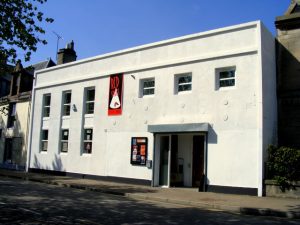
Red Shoes Ballroom, Elgin, Scotland where Narnia’s Children played often
‘Thank you,’ he said huskily into the microphone. Golly – even his voice was sexy! ‘That’s a really great welcome. And before we go any further with our first set, let me introduce you to the boys…’
‘Glory be, he’s gorgeous…’ Vix sighed.
‘On drums,’ he indicated the fabulous, tall, tanned boy with the Marc Bolan curls, ‘we have Mo… And on bass guitar we have Joss…’ Joss, darkly, dangerously, gorgeous, looked exactly like a Caravaggio angel – I’d done Art at A level and had been very taken with Caravaggio. ‘And on guitar…’ Madly, I was holding my breath, ‘we have Scott…’
Scott… I rolled the name around in my head. Scott – oh, yes, it suited him…
‘And I’m Zak,’ he grinned, caressing the microphone. ‘And collectively we’re Narnia’s Children. And now you know who we are, we’d really like to get to know you – so don’t forget to come up and say hi when we take our first break…’
This was met by screams and shrieks from the crowd. Mostly the girls.
‘Try and stop me,’ Vix breathed as the lights dimmed some more, and the St B’s glitter-balls revolved and sparkled.
‘You’re joking? What about Jeff?’
Vix just grinned at me. I shook my head and looked back at the stage, gazing at Scott, as Narnia’s Children rocked into The Hollies’ ‘Just One Look’.
Scott and Zak shared the microphone, harmonising on this one.
The words of the song… Scott was singing the words of the song – ‘Just One Look, That’s All It Took’ – and looking straight at me…
Rubbish! Embarrassed by my own foolishness, I stared down at the floor in the darkness. He wouldn’t even be able to see me from the stage… And even if he could, he wouldn’t be interested, and no, of course he couldn’t see me, not with the gloom and all those dozens of people dancing and the entire hall only being lit by the shimmering glitter-balls…
Just one look – that’s all it took…
Oh, but The Hollies had never sung a truer word, I thought dolefully, realising that falling head over heels for a gorgeous stranger was possibly one of the most ridiculous things I’d ever done in my entire life.
Just one look…
When it ended there was the usual eruption of applause and screams. I just stared at the floor and hoped no one could see me blushing at my foolishness.
‘And this next song,’ Zak was laughing, ‘is for someone who can’t be here tonight but who is very special to someone in the band…The words mean a lot…’
The Beach Boys’ ‘Girl Don’t Tell Me’…
Please, please, please, I thought, don’t let the someone special be anything to do with Scott…
Again he and Zak were sharing the microphone and the close-harmony vocals: “I met her last summer….” and laughing at one another, sharing a secret joke.
Please, please let the song and the someone be special to Zak…
Then I shook my head at my own stupidity, instinctively knowing both the someone and the song belonged to Scott, and sighed.
Three more songs and Narnia’s Children took a break. Mr Fisk was back at his turntable and playing The Turtles.
‘You’re not really going to talk to him, are you?’ I asked as Vix scrambled to her feet and headed towards the curtained-off stage. ‘Zak. I mean, not seriously?’
‘Course I am. Come on, we’re out to have fun tonight, aren’t we?’
‘Yes, but…’ I nodded to the masses of Dolly-Rockers in their baby-doll smocks and their Bally button-up shoes, ‘look at them. They’re practically trampling on one another to get up the steps and round backstage. You don’t want to be counted as one of them, do you?’
‘No, course not. I’m not joining the groupie hordes. I’m going to use all my feminine wiles to stand out from the crowd… Come on… That Scott is dead dishy…’
Self-preservation kicked-in and I shook my head. ‘No, you go. I saw Debbie and Sally from work in the queue earlier. I’ll go and chat to them in the break… I’ll see you back here.’
‘Your loss,’ Vix grinned, and sashayed off towards the steps.
I found Debbie and Sally, bought another beaker of orange squash, chatted to some other friends and went to the loo. By the time I got back to our seats, Mr Fisk was playing something by The Shadows, a lot of people were trying to do the Hank Marvin walk and failing, and Vix was sitting on the edge of the stage with Zak on one side of her and Scott on the other.
Some of the Dolly-Rockers were standing in front of the stage looking murderous.
‘Stella!’ Vix beckoned me over. ‘Come here – quickly! We’ve just been talking about you.’
Hoping I wasn’t blushing, pretty sure that I was, and knowing that if I refused I was going to look very silly indeed, but cursing Vix silently and violently, I walked across, climbed the shallow steps and sat on the stage beside Scott.
Feeling like a complete fool, and almost unable to look at him because close-to he was even more devastatingly beautiful – if that was possible – I was totally convinced that he could hear my heart thundering under my ribs.
‘There,’ Vix grinned. ‘Stella, this is Zak and Scott, as you probably know if you were listening earlier. Zak and Scott, this is my best friend, Stella.’
We all smiled at one another. Scott’s smile was all lovely and wide and lop-sided. Oh my word, he was so gorgeous. All my poise and cool flew out of the window and I knew when I spoke my voice would come out in some sort of strangulated squeak.
‘Fab,’ Vix smiled. ‘Now I just need to powder my nose, so I’ll leave you to get to know each other.’
‘What?’ I glared at her.
‘I’ll only be a couple of minutes,’ she chuckled. Then she leaned forward and whispered. ‘Don’t waste the opportunity. The rest of the Dolly-Rockers are being entertained backstage by Mo and Joss, oh and apparently the roadie, who I think is called Rich. I’ve captured these two for you to make your evening really special.’
And she was gone.
Zak watched her go, and stood up. ‘She’s cool. Shame she’s spoken for – she told us about her boyfriend… I guess I’d better go and check out the talent backstage and leave you two to it. See you soon, Stella, lovely to meet you – and Scott, 5 minutes, ok?’
Scott nodded, then he smiled at me again. He really had a fabulous smile.
‘Hi, Stella.’ His voice was deep and warm and well-educated. It did nothing to calm my butterflies. He stared at me and nodded slowly. ‘I love the outfit and the sequins… but to be honest, it seems such a waste.’
‘Sorry?’ I frowned at him. ‘I’m not sure…’
‘Your operation. Your friend told us all about it.’
‘Did she?’
She’d told them – complete strangers – that I had major personal internal medical problems and was going to die? Oh – I knew I’d kill her.
‘Sorry, then. She really shouldn’t have. I’m sure you didn’t want to know all the gory details.’
‘She didn’t go into any details, just said you were having the operation on Monday. Aren’t you scared?’
‘Terrified.’
‘So don’t do it.’
‘I don’t have a choice.’
This was the most surreal conversation anyone could be having, surely? Especially with someone you’d only been introduced to 30 seconds earlier and who you knew you’d love for the rest of your – obviously – very short life, all played out to a background of The Bonzo Dog Doo Dah Band’s ‘I’m The Urban Spaceman’ blaring from Mr Fisk’s turntable.
‘Of course you have a choice. I mean, I don’t know you or anything about you, but you’re definitely a girl and you’re very pretty – so why do you want to be a man?’
‘What???’
‘The sex-change operation.’ Scott looked at me, his face serious. ‘Your friend said you were having a sex-change op and were going to be called Adrian.’
‘What????’ I didn’t know whether to laugh or cry. ‘She said what??? Oh, God in heaven! I’m really going to kill her!!! I’m so, so sorry. That’s not why I’m going into hospital.’
‘Thank the lord for that,’ Scott grinned at me, the turquoise eyes dancing wickedly. ‘I was pretty sure she was lying, and I didn’t think you looked much like an Adrian, but she was very convincing and I didn’t want to insult you if it was true.’
‘No, it isn’t, and oh yes, she is very convincing. She can usually manage to pull the wool over most people’s eyes. And now I’m really going to throttle her! Anyway, I’m just so sorry – so, yes, I’m going into hospital, yes, I’m having an operation, yes, I’m petrified because I think I’ll die under the anaesthetic, and no, I’m definitely not having a sex change or going to be called Adrian. Ever.’
Scott laughed. ‘As opening conversations go, this will probably rank as one of the strangest I’ve ever had.’
‘I was just thinking the same thing.’
We smiled at each other. I swear there were fireworks and butterflies and bluebirds and rainbows and celestial trumpets.
‘I’d be scared, too,’ he said softly. ‘And I don’t know what you’re having done, but you’ll be ok. Promise. So was she lying about the other part too?’
‘Probably. Depends what it was.’
‘That you’re a music journalist.’
I laughed. ‘Only if she said I worked for Melody Maker or the NME. I do freelance part-time pop interviews for the teenage magazines – but my real grown-up boring job is as a civil servant.’
‘Teenage magazines sound perfect. Just right for us. Will you interview us, then? One day? Seriously?’
‘Scott!’ Mo, the fabulous Marc Bolan’d-haired drummer, suddenly poked his head through the curtains before I could answer. ‘Up here – now! We’re ready for the second set.’
Scott nodded. ‘Yeah, sure. OK.’
‘Now!’ Mo snapped, glaring down at me. ‘Come on!’
Scott scrambled to his feet and looked at me. ‘I hope you’ll enjoy the second set. And please – don’t run away at the end.’
‘Scott!!!!’ Mo roared. ‘Come on – we’re waiting for you!’
‘See you later,’ Scott smiled, and disappeared through the curtains.
Mo gave me another glare and followed him.
I floated back to my seat, completely and idiotically in love, and only vaguely wondering why Mo didn’t seem to like me. Not, I thought, as I sat down, any of it mattered because I’d never see any of them again.
Vix sauntered back and sat down again just as the lights dimmed.
‘I will kill you!’ I hissed. ‘How could you say that?’
‘It worked, though, didn’t it?’ she hugged me. ‘It was a great ice-breaker. I knew he’d talk to you because he was intrigued.’
‘Intrigued? He must have thought he’d wandered into a mad-house. Dear God, Vix – a sex change????Why on earth – ?’
‘Because I think he fancies you, and because I saw the way you were looking at him, and because this is going to be a night to remember for you – and I’m guessing that he gets the come-on, and the same boring old chat-up lines, from girls everywhere he goes – so I just used my ingenuity. No, it’s ok – no need to thank me. It’s what best-friends do.’
I laughed. ‘You’re crazy. Anyway, no of course he doesn’t fancy me and even if he did, which he doesn’t, what would be the point? He’s clearly got someone else, I’m going to die on Monday and he’s going to be in Jersey – with the someone else who couldn’t be here tonight.’
‘But you do fancy him?’
‘Yes.’
‘There then. Trust Auntie Vix.’
Narnia’s Children’s second set was just as mind- blowingly amazing as the first had been. Whether they were playing blasting rock’n’roll, full-on complex close harmony or pure bouncy pop, they were excellent. This time though, I did watch Scott. It didn’t matter that he had a special someone or that he’d be a million miles away by the morning and that I’d never see him again because I’d be dead. None of it mattered. I just wanted to soak up as much of him as possible and store it in my memory so that I could drag it out and it would be the last thing I’d see before the anaesthetic killed me.
And then they played The Hollies’ ‘Stay’. And Scott was singing.
And he was looking at me.
“… please stay… just a little bit longer…”
Vix jabbed me in the ribs. ‘Told you!’
And I just smiled. Because it was silly and futile and pointless, not to mention wrong, for so many reasons.
And then, all too soon it was over. To roars of approval and deafening applause and heartbroken screams from the Dolly-Rockers, Narnia’s Children finished their set with a flourish and the green curtains swished shut.
I actually felt bereft.
The lights in the hall blazed into life, and immediately the dark, smoochy atmosphere was bleached away. The packed hall no longer looked exciting – it just St B’s gym hall. Mr Fisk was busily packing away his records, the Dolly Rockers were still hanging around the stage steps and most other people, blinking blearily, were heading for the cloakroom. I stood up.
‘Whoa,’ Vix grabbed my arm. ‘Where are you going?’
‘To get my coat.’
‘Not before we’ve said goodbye to the boys in the band. C’mon…’
‘Vix! No! Let’s go home.’
But Vix wasn’t listening and she hauled me after her, cutting a swathe through the Dolly-Rockers, up the steps, and still with me in tow, barged through the curtains on to the stage.
Backstage, it was mayhem.
The boys and a slightly older bloke, presumably Rich the roadie, were winding miles of cables, hefting towers of speakers, packing away guitars, dismantling the drum kit, uncoupling microphone stands.
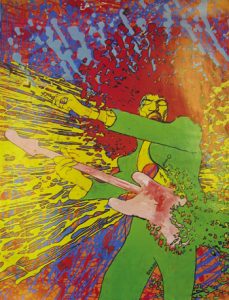
The stage was littered with discarded T-shirts, coats, drinks cans and bottles, towels and masses of other unrecognisable paraphernalia. Vix and I stood back and watched the organised chaos with fascination. It may have looked like pandemonium, but clearly Narnia’s Children, organised by Rich, knew exactly how to clear everything away with the minimum of fuss and in the shortest possible time.
Scott was carefully packing away his guitar on the far side of the stage and he looked up and smiled at me. Warily, I smiled back.
‘Go home,’ a voice said in my ear. ‘Leave him alone. He’s got a girlfriend.’
I turned and looked at Mo, his arms full of band gear, and frowned. ‘What?’
‘He’s got a girlfriend. She’s gorgeous. Back off. Ok?’
Surprise, surprise. I sighed. ‘Oh… er… that’s nice…’
‘It is. She is,’ Mo walked away. ‘She’s cool. He’s not into groupies like you, so clear off.’
‘He’s right,’ Rich, also loaded with band kit, paused beside me. ‘Renza’s very special to Scott – and to all of us. He’s going to marry her. Soon. He never looks at other women and he certainly won’t be interested in you. So, stop hanging around. Look, love, putting this very nicely – sod off.’
Renza… pretty name. Italian? She probably looked exactly like Gina Lollobrigida or Sophia Loren. Dark, glamorous, sultry and oh-so-sexy. My imagination went into overdrive as I pictured her and Scott together… Renza… I knew I hated her.
I also knew when I wasn’t wanted. You didn’t have to tell me twice. Picking my way through the group’s muddle, I headed for the gap in the stage curtains.
‘Stella!’ Scott had put down his guitar case and stepped in front of me. ‘Where are you going? You can’t just leave. You haven’t said goodbye.’
I just stared at him. The most gorgeous, flirty, beautiful, clever, sexy – and engaged-to-be-married – boy I’d ever meet. Then I noticed Mo and Rich, still watching me, glaring at me, standing there, side-by-side behind Scott, like twin Outraged Moral Guardians.
‘Go away,’ Mo mouthed silently. ‘He’s got Renza. He’s not interested. Go.’
Rich wasn’t quite so polite. ‘Bugger off!’
I didn’t stop to think. I turned back to look at Scott, and without taking my eyes from his, I took a deep breath, balled up my fist, and punched him in the stomach. Hard.
I heard him gasp, heard Vix shriek, but just turned and ran towards the gap in the curtains. Then looking triumphantly over my shoulder at Mo and Rich, I pushed my way through the curtains, slithered down the stairs off the stage and ran out of the hall.
***
If you like to buy Only One Woman…
Ebook pub date: 23rd November 2017
Print pub date: 24th May 2018
Amazon link: http://amzn.to/2eBWhXm
***

Jane Risdon
Here’s little information about Jane Risdon…
Jane Risdon has spent most of her life in the international music business. Married to a musician she has experienced the business first hand, not only as the girlfriend and wife of a musician, but later with her husband as a manager of recording artists, songwriters and record producers, as well as placing songs on TV/Movie soundtracks for some of the most popular series and movies shown around the world.
Writing is something she has always wanted to do but a hectic life on the road and recording with artists kept those ambitions at bay. Now she is writing mostly crime and thrillers, but recently she’s collaborated with award-winning author Christina Jones, on Only One Woman. A story they’ve wanted to write together, ever since they became friends when Christina became Fan-club secretary for Jane’s husband’s band.

Christina Jones
Here’s a little information about Jane’s co-author, Christina Jones…
Christina Jones, the only child of a schoolteacher and a circus clown, has been
writing all her life. As well as writing romantic comedy novels, she
also contributes short stories and articles to many national magazines and
newspapers.
Having successfully written short fiction for the teenage publications, while still at school Christina became a teenage rock/pop music journalist for Romeo and Jackie magazines, interviewing many 60s’ chart stars – including the Stones, the Move, Amen Corner, the Herd, the Foundations, Alan Bown, Argent, the Zombies, Unit 4+2, the Walker Brothers, Simon Dupree, and Dave Dee, Dozy, Beaky, Mick and Titch among many others.
She has won several awards for her writing: Going the Distance was a WH Smith Fresh Talent Winner; Nothing to Lose, was shortlisted and runner-up for the Thumping Good Read Award with film and television rights sold; Heaven Sent was shortlisted in The Melissa Nathan Comedy Romance Awards and won a Category Award; Love Potions won the Pure Passion Award; The Way to a Woman’s Heart was short-listed for the Rom-Com of the Year; and An Enormously English Monsoon Wedding won The Reviewer’s Choice Award.
She has written 21 romantic comedy novels:
Dancing in the Moonlight; Going the Distance; Running the Risk; Stealing the Show; Jumping to Conclusions; Tickled Pink; Nothing to Lose;
Walking on Air; Lavender Lane; Honeysuckle House; Forever Autumn; Summer of Love; Hubble Bubble; Seeing Stars; Love Potions; Happy
Birthday; Heaven Sent; Moonshine; The Way A Woman’s Heart; Never Can Say Goodbye and An Enormously English Monsoon Wedding.
She has also written and/or contributed to 11 e-book-only novellas/short stories/compilations: Those Lazy, Hazy Crazy Days; Mitzi’s Midwinter Wedding; Bucolic Frolics; Happy Ever After; Snippets; Shiver; Holiday Fling; Wishing on a Star; Chicklit Lovers Vol One; Chicklit Lovers Vol Three; Milton St John Box-Set.
Her latest novel – the love and peace and rock’n’roll 1960s story: Only One Woman – co-authored with Jane Risdon, will be published in November 2017.
All Christina Jones’ novels are currently available, either in paperback or e-book format, and after years of travelling, she now lives in rural Oxfordshire with her husband and several rescued cats.
Author Twitter handles: @bucolicfrolics (Christina Jones) and @Jane_Risdon (Jane Risdon)
***
Thanks ever so much for dropping by today!
Happy reading,
Jenny. xx
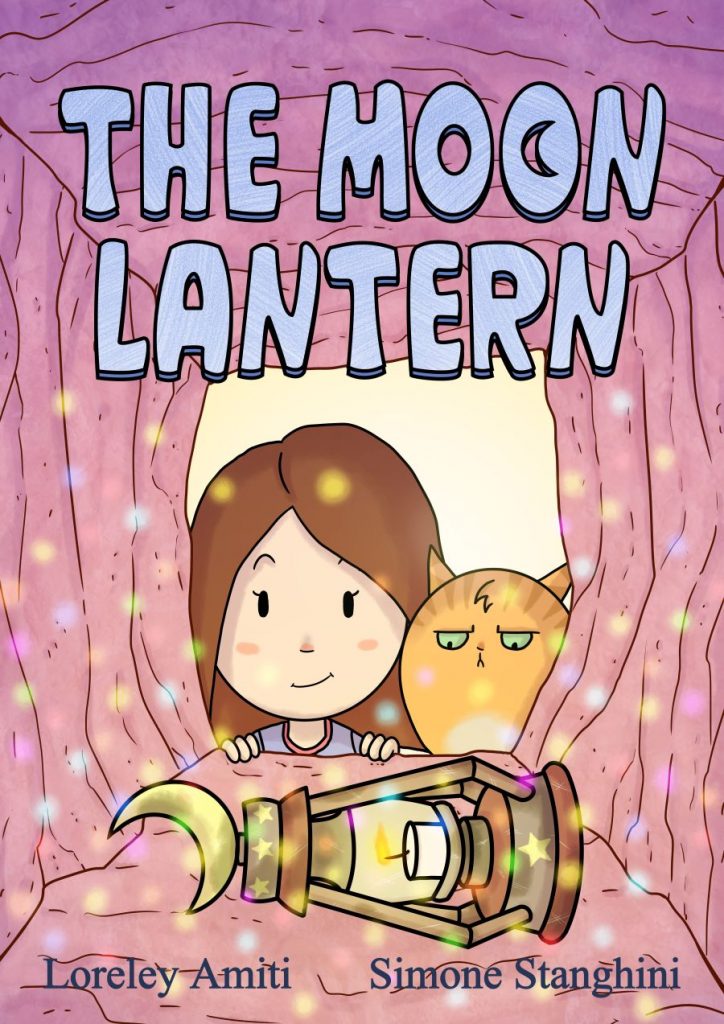
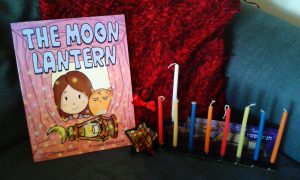
 ***
***















